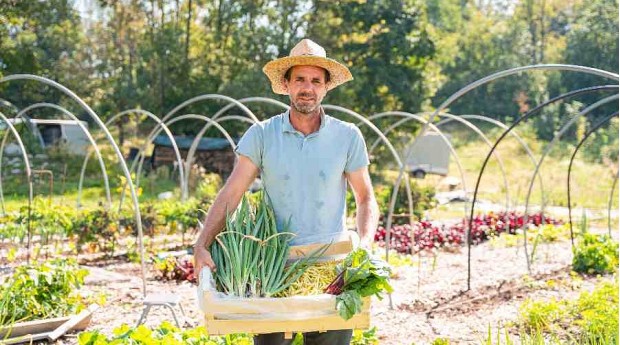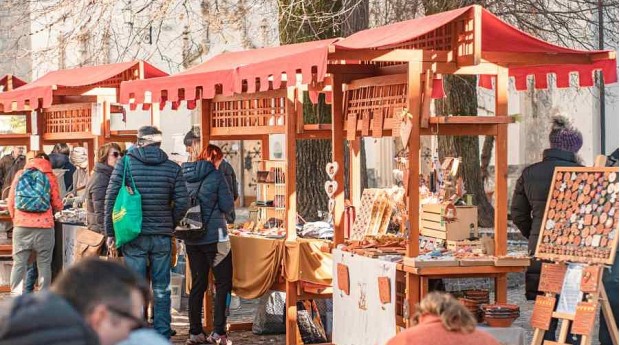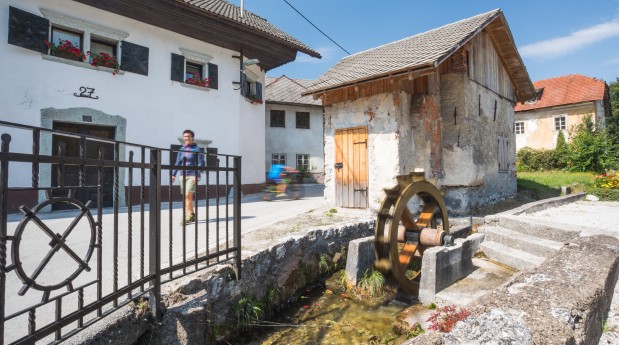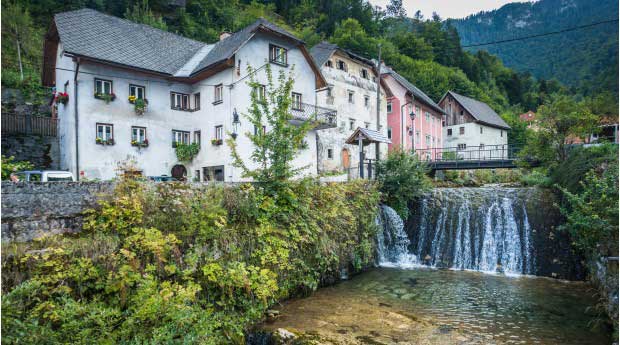Beans in Radovljica – from the fields to the pot
In the past, beans held a special place in the Radol'ca area and still do to this day. In the former ironworking villages of Kropa and Kamna Gorica, in addition to žganci (a polenta-like dish, most often made of buckwheat), one of the most traditional dishes is a bean soup called fržolovc.
The Vegerila Organic Farm grows its produce in fields in the vicinity of Hraše. The farm is run by Tilen Prapotnik, who has been involved in agriculture for around 30 years – initially as a keen amateur gardener, a passion that over time led him into farming.
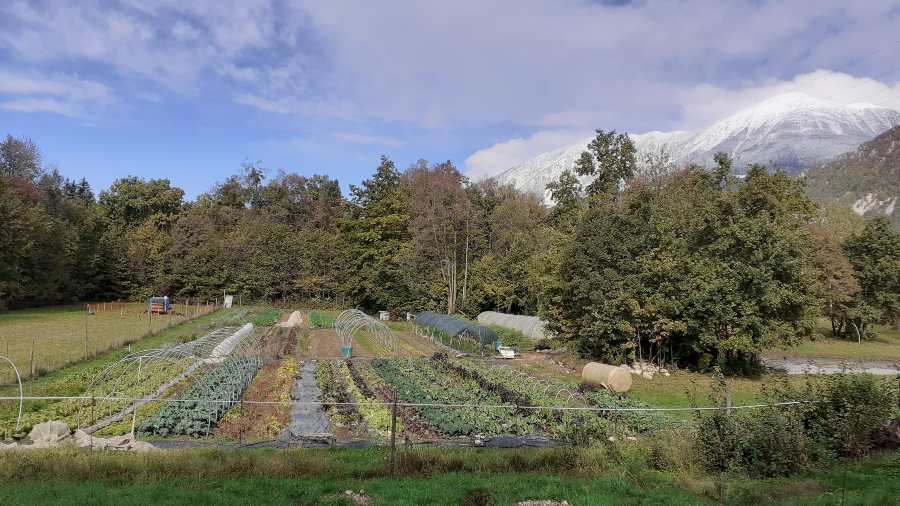
Photo: The Vegerila Farm
“We are slowly moving from the edge of one part of Hraše to the other edge of the village. Why? Because of water. There's not enough here,” explains Tilen, as we stroll through the meadow, just a stone's throw from the main road whilst also far enough removed from inquisitive looks. Part of the meadow has been changed into an allotment, one part of which is still calm and peaceful, while the other part is home to grazing sheep and a small area for hens. Both have wonderful views of the vast natural features and the peaks of the Karavanke mountains on one side, and the outline of the Julian Alps and the Jelovica plateau on the other.
“We currently have nine sheep, but the flock will soon expand. The sheep here aren't for sale but rather to maintain the meadow – they are both lawnmowers and muck spreaders in one,” says Tilen, laughing. The flock of sheep moves from place to place on the meadow: they graze a day or two in one part, then Tilen moves their pen elsewhere. The hens also 'move' every few days, albeit in their large, moveable coop.
Today, Tilen Praprotnik cultivates six hectares of land, which covers three locations in the vicinity of Hraše. On the land he grows over 60 different types of organic vegetables, which customers can order directly from Tilen in the form of weekly vegetable boxes, or they can be purchased at the Ajdna Cooperative or at the Dobra misel shop (Železniška ulica 5, Lesce).
“The vegetable boxes aren't available year-round but rather just when the vegetables grow, i.e. from the end of May/beginning of June to the end of November. And I can't answer the question of how heavy the boxes are, since I always ensure that there at least ten different types of vegetables in them, regardless of the weight,” Tilen says, referring to the seasonal rhythm of the Vegerila Organic Farm.
Of course, beans are among the vegetables growing in the Vegerila allotments. To be more precise: every year we plant three different types of beans according to the organic principles of farming. However, these beans aren't intended for cooking, rather they turn into seeds, which are then stored and exchanged among allotment holders throughout Slovenia.
Therefore, the beans grown for seeds at the Vegerila Organic Farm go into the Semenjalnica storage and exchange facility, where they are stored, divided into bags or tubes and then sold to those who want to grow traditional types of beans and peas in their home gardens according to organic farming principles.
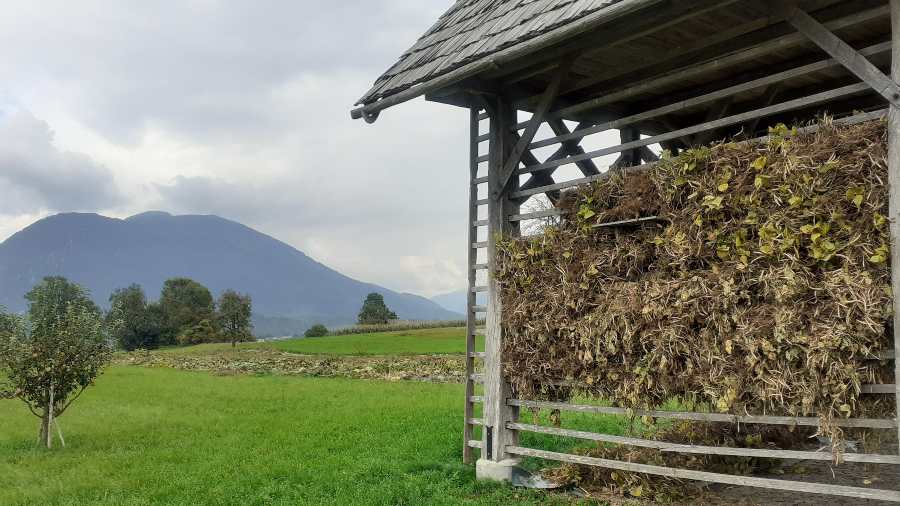
Photo: Beans from the Vegerila Farm are produced according to the principles of ecological farming
The Semenjalnica is located in the Beekeeping Education Centre of Gorenjska in Lesce, and it was there that we sat down for an interesting chat with the agronomist Maja Kolar, who is the 'engine' of the Gorenjska Semenjalnica organic seed storage and exchange facility.
So, to sum up: “The main aim of the Semenjalnica project is to establish local production of organic seeds while also preserving old types of seed.” The seeds are grown in the fields and allotments of 13 sub-contractors – including the aforementioned Vegerila Organic Farm – according to the principles of organic farming.
At the moment, the Semenjalnica storage and exchange facility has eight different types of organic peas and beans. The variety of dwarf beans are the common bean (phaseolus vulgaris), and there are also helios French beans and majdi beans, while the climbing beans are baluhilde, klosterfrauen, and neckargold. There are plans for seeds from other vegetables to also be included in the Semenjalnica project.
.jpg)
Photo: The main aim of the Semenjalnica is to reestablish the local production of organic seeds while at the same time preserving old varieties
So, why should you choose seeds from the Semenjalnica? “We've noticed that our varieties of beans and peas are adapted for the environment and weather conditions here. The seeds haven't been sprayed with pesticides or mineral fertilisers, rather they were grown in an organic way. They are vital and full of life,” says Maja Kolar.
If you're interested in finding out which kinds of traditional varieties you can plant in your garden or allotment, perhaps this information will also be of use: the organic seeds can be ordered online or drop into the Semenjalnica shop in the Beekeeping Education Centre of Gorenjska (Rožna dolina 50a, Lesce).
And, finally, the third bean-related stop off our journey through the municipality of Radovljica: the Gostilna pri Jarmu inn, which is located at the entrance to the village of Kropa opposite the Novi Plamen factory.
The inn, whose roots date back to the 18th century, has been run for 35 years by Urška and Andrej Avsenik. The menu features traditional Kropa food, including fržolovc (bean stew). Other popular local dishes include žonta (made from calves liver) and sladkulca (sweet plaited bread). All the aforementioned dishes, as well as many others that are linked to the heritage of food in the villages of Kropa and Kamna Gorica, were recently gathered together by locals and published in the Vigenjc Gazette, which is published annually by the Iron Forging Museum in Kropa.
.jpg)
Photo: Fržolovc bean soup, available at Gostilna pri Jarmu in Kropa
The residents of Kropa, a small Gorenjska village beneath the Jelovica plateau, home to around 800 inhabitants, are incredibly proud of their iron forging and culinary heritage. Hence, the local cultural and tourist association, together with the Iron Forging Museum and Gostilna pri Jarmu have put together a project titled 'Pokus Kropo', through which they want to review and (re)introduce Kropa's traditional cuisine.
And finally, if you're interested in Kropa's simple, yet tasty food, take a peek at Špela's Larder, where you can buy fržolovc bean stew made to Urška Avsenik's recipe from Gostilna pri Jarmu.
This guide was created as part of the ‘EKO Tastes of Slovenia’ project, run in cooperation with LAS, which is co-financed with the help of the European Agricultural Fund for Rural Development: Europe Invests in Rural Areas. The Radovljica Public Institute of Tourism and Culture is responsible for the content. The governing body appointed to implement the Rural Development Programme of the Republic of Slovenia for the period 2014-2020 is the Ministry of Agriculture, Forestry and Food. Source of funding: European Agricultural Fund for Rural Development (EAFRD).
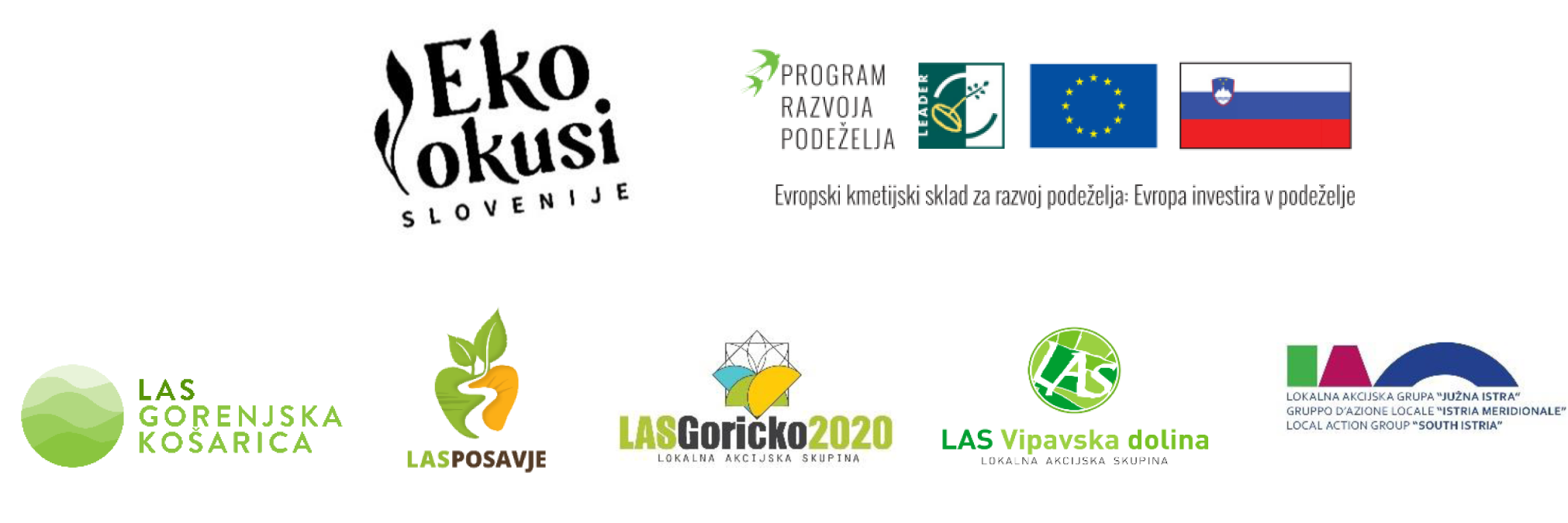
Related news
Taste Radol'ca restaurants are distinguised by the excellent food, which is based on fresh, seasonal and locally produced ingredients. Read our chat with a local producer.
Every first Saturday in the month from 10am to 12noon a farmers, craft and antiques market takes place in Linhart Square and the square in front of St. Peter's church.
A picturesque iron forging village beneath the Jelovica plateau with numerous water troughs and small bridges, which has earnt it the name 'Mini Venice'.


_r.jpg)

